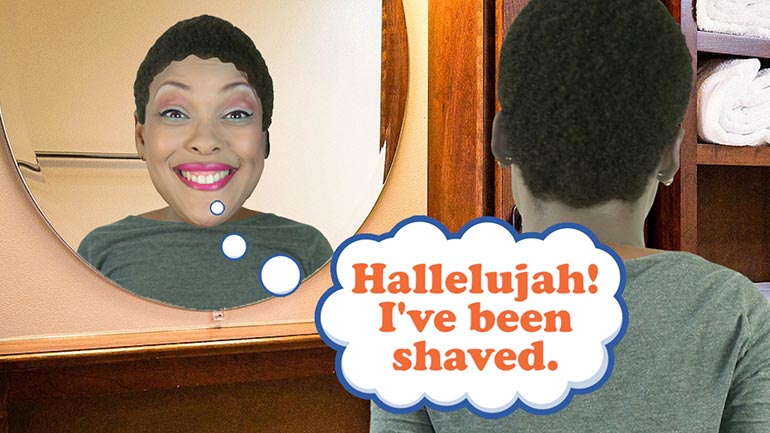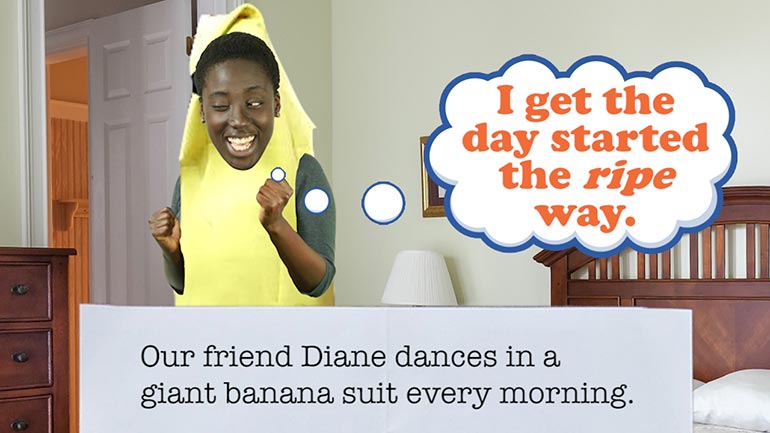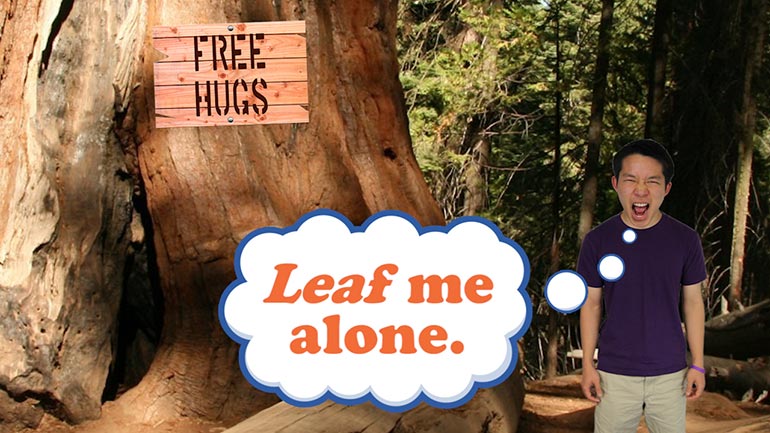ShmoopTube
Where Monty Python meets your 10th grade teacher.
Search Thousands of Shmoop Videos
Social Studies 4: Water Sources and Geography 24 Views
Share It!
Description:
Where does our water come from? It doesn't just grow on trees...right? If it did, what would you water those trees with?
Transcript
- 00:03
[Dino and Coop singing]
- 00:13
If we were to ask you what you simply couldn't live without, you might say... [Girl playing Guitar Hero]
- 00:17
Playstation.
- 00:18
Chocolate milk.
- 00:19
YouTube.
Full Transcript
- 00:20
Or your bed.
- 00:21
Especially with those new Memory Foam pillows. [Girl relaxing in bed]
- 00:22
But if we wanted you to be super-serious with your answer… come on, bear with us… [Students look bored]
- 00:27
“water” would probably be pretty high on your list. [Someone filling a cup with water]
- 00:30
Thankfully for you – and really, for everyone here in the US – America is home to a tremendous
- 00:35
number of water sources, including oceans, seas, gulfs, sounds, bays, straits, lakes, [Coop pointing at a blackboard]
- 00:40
reservoirs, rivers, and uh…drinking fountains.
- 00:42
The study of geography includes the study of these many different types of water sources.
- 00:48
Oceans are the largest bodies of water – and the USA has land bordering three of them: [Land bordering the ocean highlighted]
- 00:53
the Pacific, Atlantic and Arctic Oceans.
- 00:56
The Indian Ocean is the only one that’s… a bit of a trek.
- 00:59
In addition to being the biggest, oceans are also the scariest bodies of water on the planet, [Man falls off a surfboard]
- 01:03
because horrifying nightmare-fuel like the Goblin shark live in it.
- 01:07
That’s okay.
- 01:08
We never needed to sleep again. [The man that fell into the ocean looks terrified by the shark]
- 01:10
Seas are smaller in size than oceans but are still awfully large bodies of water that connect [Dino pointing at a blackboard]
- 01:15
other bodies of water.
- 01:16
For example, the Bering Sea connects the Pacific Ocean and the Arctic ocean.
- 01:20
You can think of seas as professional romantic matchmakers that enjoy making love connections. [Two boats with a man and woman on, named arctic and pacific bump into each other]
- 01:26
Straits, sounds and bays are terms used to describe bodies of water that border land [Coop pointing at a blackboard]
- 01:30
on at least one side.
- 01:31
They’re smaller in size than seas and oceans, but they're at least made partly of salt water.
- 01:37
Great for gargling when you feel a cold coming on. [Man gargling salt water]
- 01:39
Lakes and reservoirs, meanwhile, are surrounded by land on all sides… and can either be [Dino pointing at a blackboard]
- 01:44
manmade or occurring naturally.
- 01:45
There are over 100,000 thousand lakes in the United States, including the five great lakes
- 01:50
that are partially shared with Canada.
- 01:52
But that doesn't mean the other lakes aren't “great”. [Picture of a rainbow]
- 01:54
They're just not one of the Great Great lakes.
- 01:57
They're little G great, not big G great. [The Great Lake sign has the 'Great' crossed out and replaced with 'great']
- 02:01
Rivers connect to one another and can be used as transportation routes.
- 02:04
For example, the Mississippi River moves through ten states and is used to ship goods around
- 02:09
the world.
- 02:10
It’s also been known to assist in the escape of certain raft-toting fugitives… [Huck Finn and Jim on a raft]
- 02:14
Water sources can positively impact a state's economy thanks to fishing, shipping routes [Large tanker and a man fishing]
- 02:18
and tourism...
- 02:20
…but can also cause natural hazards like flooding and hurricanes. [Hurricane shown on a weather map]
- 02:22
On the bright side, your family’s swimming pool has roughly a zero percent chance of
- 02:27
being responsible for a major flood. [Guy in a swimming pool with a life jacket on]
- 02:28
That is, unless ten of your friends decide to cannonball at the same time… [A group of people jump into the pool and the water splashes out]
Up Next
Sticks and stones, right? Well...only sometimes. It's a good idea to make sure your words aren't going to hurt others. Let's look at some ways to d...
Related Videos
Learn to debate like a champ. It's way better than debating like a chimp. That just takes mudslinging to a whole new level.
Today we'll learn about biographies and autobiographies. And no, the second one has nothing to do with the lives of cars.
In this lesson we'll subject you to some verbs and predicates. Each one is a necessary part of a complete breakfas—er...sentence.
Choosing words carefully is important. You may end up vexing the assemblage of citizens you're conversing with...or you might even just plain bore...




